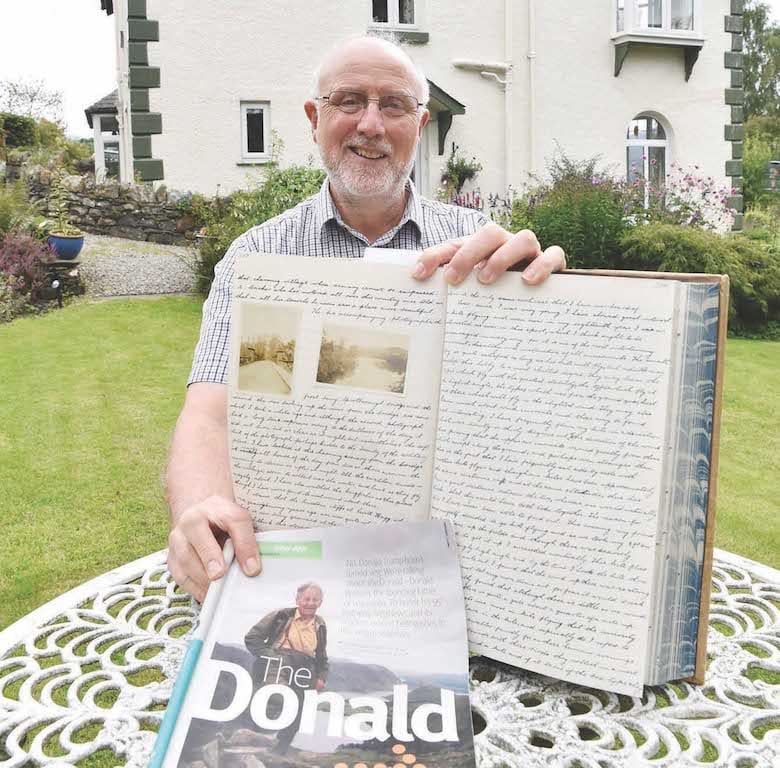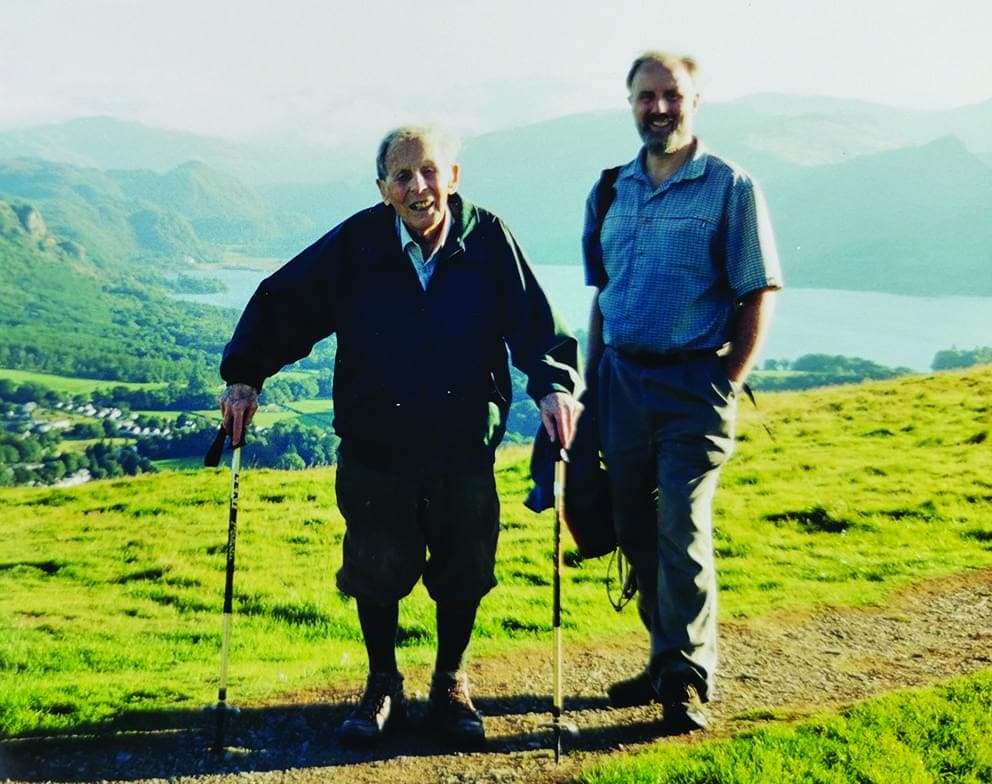
Keswick’s reputation as a must visit destination for vegetarians and vegans is flourishing, but it is unlikely that many visitors realise that the man who coined the word for those who do not eat animal-derived foodstuffs lived in the town.
Donald Watson founded the Vegan Society in 1944. He and his wife, Dorothy, came up with the word to describe a lifestyle which has been adopted by millions.
The couple moved to Keswick in 1951 and Donald was well known in the town as he taught woodwork at Laithwaite School.
They lived at Sandburne House, Chestnut Hill, which is now a B&B, run by their son-in-law, Anthony Hazzard.
“My father in-law was very well known in town. People called him Poppy,” said Anthony.
“I think the nickname was a corruption of Popeye. Being vegan, everyone thought he ate a lot of spinach!”
Anthony has continued the family legacy of a meat-free lifestyle with a vegetarian B&B. The house is surrounded by gardens which Donald once used for his passion of growing fruit and vegetables.
Donald and Dorothy were driven by concerns about animal cruelty and the intensification of agriculture following the war, explained Anthony.
Donald grew up in a “meat-eating family” in Mexborough, South Yorkshire, but when he was 13, he was shocked by the screams of a slaughtered pig on his Uncle George’s South Yorkshire farm, and in 1923 he made a new year’s resolution not to eat meat — a pledge he honoured until he died.
Towards the end of the Second World War, which Donald avoided as a conscientious objector, he decided to share his view that it was not only eating meat that was inhumane, but also dairy products such as milk, cheese or eggs.

He also tried not to wear leather, wool or silk and used a fork, rather than a spade, on his allotment to avoid killing worms.
At first, Donald approached Leicester’s vegetarian society to suggest this new lifestyle, but he was told it was too extreme.
Anthony said: “It was very difficult then because it was war time and rationing made a vegan diet challenging.”
Donald and Dorothy decided to set up their own society and came up with the word “vegan”.
“Vegan combines the start and end of the word vegetarian,” said Anthony. “For Don, being vegetarian was the start of the journey to eating humanely, and being vegan was how to follow the journey to its logical conclusion.”
The couple took on the labour-intensive project of handwriting and printing Vegan News, a newsletter spreading the word about the new diet.
In its first edition, Donald wrote: “The unquestionable cruelty associated with the production of dairy produce has made it clear that lacto-vegetarianism is but a halfway house between flesh-eating and a truly humane, civilised diet, and we think, therefore, that during our life on earth we should try to evolve sufficiently to make the ‘full journey’”.
“Don and Dorothy ran the society practically on their own for one or two years. I think people regarded them as pretty cranky oddballs,” said Anthony.
In 2019, veganism had 600,000 followers in the UK and millions worldwide.
Donald’s contributions are being recognised in academic books and by the Vegan Society, with its headquarters in Birmingham named after Donald.
In an interview in 2002, Donald said he felt his greatest achievement was “to feel that I was instrumental in starting a great new movement which could not only change the course of things for humanity and the rest of creation but alter man’s expectation of surviving for much longer on this planet”.
Despite this, Donald was a very humble man, said Anthony, who added: “I’m not a vegan myself but lots of my guests do come to the B&B because they know about Don’s involvement in the vegan world. But Sandburne Guest House is in no way a shrine to him or site of pilgrimage for vegans.”
Anthony said he was inspired to become a vegetarian by his wife Jan — Donald’s daughter.
He added: “I’ve been running the guest house for five years. Jan passed away seven years ago and this was our family house. Jan was a lifelong vegetarian.
“Veganism definitely kept Donald fit and healthy. He passed away in November, 2005, at the age of 95, but he was walking up and down to Keswick until his last days. Two days before he died, he climbed to the top of Latrigg.”








